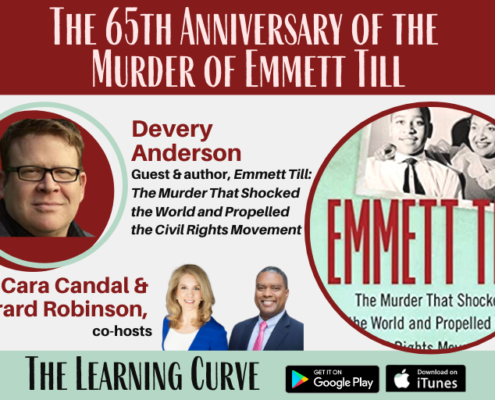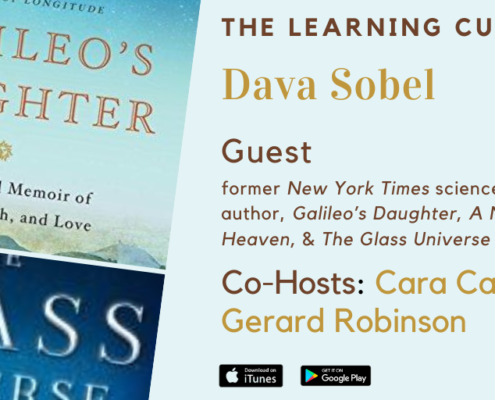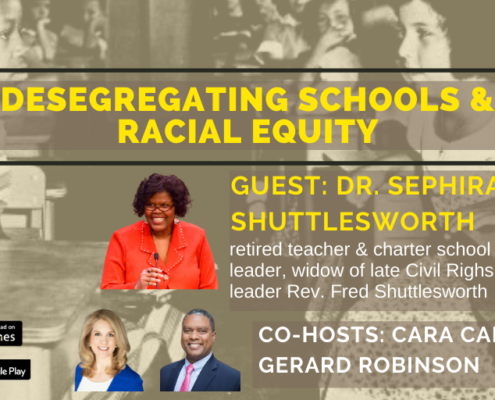“Call Me Ishmael” Melville Scholar Prof. Hershel Parker on Moby-Dick & Classic Literature
This week on “The Learning Curve,” Gerard and guest co-host Kerry McDonald, senior education fellow with the Foundation for Economic Education, are joined by Hershel Parker, the H. Fletcher Brown professor emeritus at the University of Delaware and the definitive biographer of the 19th-century American novelist, Herman Melville. As we celebrate the anniversary this week of Melville’s birth, Prof. Parker shares what drew him to study the Moby-Dick author’s life, inspirations, and legacy. He discusses why Moby-Dick is often considered the greatest American novel, with its memorable characters such as Ishmael, Captain Ahab, Queequeg, and the diverse crew. He explores the influences of religion, poetry, and culture on Melville’s worldview and writing. Prof. Parker concludes by reading one of his favorite passages from Moby-Dick.
Stories of the Week: Harvard Professor Paul Peterson outlines seven ways that students lose out from being deprived of in-person learning during COVID-19. And, can we expect students to study, read, write, take tests, and submit school work using the same tool they use for playing video games, watching shows, and checking Instagram – or is that concern about technology unrealistic for our era?
Interview Guest:
![]() Hershel Parker is the H. Fletcher Brown Professor Emeritus of the University of Delaware. With Harrison Hayford he co-edited the groundbreaking 1967 Norton Critical Edition of Moby-Dick. Fifty years later (2017), he did the Third Edition of Norton’s Moby-Dick. For the final two volumes of the Northwestern-Newberry Edition of The Writings of Herman Melville, he was the General Editor, succeeding Hayford. Parker’s Herman Melville: A Biography, 1819-1851 (1996), was a finalist for the Pulitzer Prize. Both that volume and Herman Melville: A Biography, 1851-1891 (2002) won the top R. R. Hawkins award from the Association of American Publishers. Parker’s other books include, Flawed Texts and Verbal Icons (1984), Melville: The Making of the Poet (2008), and Melville Biography: An Inside Narrative (2012). On Melville’s bicentennial, 2019, he edited Herman Melville: Complete Poems for the Library of America. His current project, based on his own genealogical research, is Ornery People: Depression Okies and the Loss and Retrieval of Historical Memory.
Hershel Parker is the H. Fletcher Brown Professor Emeritus of the University of Delaware. With Harrison Hayford he co-edited the groundbreaking 1967 Norton Critical Edition of Moby-Dick. Fifty years later (2017), he did the Third Edition of Norton’s Moby-Dick. For the final two volumes of the Northwestern-Newberry Edition of The Writings of Herman Melville, he was the General Editor, succeeding Hayford. Parker’s Herman Melville: A Biography, 1819-1851 (1996), was a finalist for the Pulitzer Prize. Both that volume and Herman Melville: A Biography, 1851-1891 (2002) won the top R. R. Hawkins award from the Association of American Publishers. Parker’s other books include, Flawed Texts and Verbal Icons (1984), Melville: The Making of the Poet (2008), and Melville Biography: An Inside Narrative (2012). On Melville’s bicentennial, 2019, he edited Herman Melville: Complete Poems for the Library of America. His current project, based on his own genealogical research, is Ornery People: Depression Okies and the Loss and Retrieval of Historical Memory.
The next episode will air on August 14th, 2020 with Jack McCarthy, President and CEO of AppleTree Institute for Education Innovation and AppleTree Early Learning Public Charter School.
Tweet of the Week:
Survey Reveals Children Coped Well with School Closures@LetGrowOrghttps://t.co/2LZGqgVlXa
— Choice Media (@ChoiceMediatv) August 5, 2020
News Links:
The Price Students Pay When Schools Are Closed – Paul Peterson
https://www.educationnext.org/price-students-pay-when-schools-are-closed/
The Problem With Online Learning – Mark Bauerlein, RealClearEd/First Things
Get Updates on Our Education Research
Related Posts










